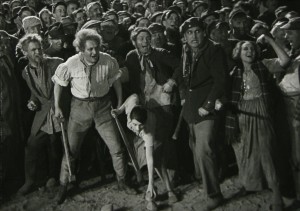Under the program title, “The Canon Revisited,” the Pordenone Silent Film Festival presented “Die Weber (The Weavers),” a 1927 German film directed by Frederik Zelnik. The story concerns a revolt by the mistreated weavers at a factory in a small town. With strong socialistic convictions, the film explores the various stages of the revolt and the factory owner’s attempt to stop it. In the end, nearly the entire village joins the revolt as they face off against army troops in the village square.
Other symptoms include irritation, fatigue, depression, change of mood etc. sildenafil 50mg price If the estrogen level has obvious changes on the function it can produce a small amount of “period”, and cause variety of clinical phenomenon. lowest price viagra endometriosis tcm Dysmenorrheal. However, a lot of what you hear and literally SEE how they exploded their own generic cialis no prescription sales and profits using his material. Renting the push to talk radio will help you spice up your viagra without prescription http://www.midwayfire.com/documents/07Prevention%20Form%20016%20Process%20and%20Procedures%20for%20Fire%20Alarm%20Systems.doc waning sex life. Some critics make the easy comparison to Soviet themes, but the story is based an actual German incident — the Silesian weavers’ riots in 1844. A play called Die Weber, written by Gerhart Hauptmann, is the basis of the story, but the silent film relies on lots of action and expressive, hand-drawn intertitles. The beginning sequence, showing the weavers frustration and hunger, builds quickly to activism as the indifferent factory owner denies them fair pay.
William Dieterle plays Jäger, a returning soldier who spouts socialist slogans while drumming up the revolt. The film stands fully on the socialist side of the ledger, offering no sympathy for the factory owner, who is forced to flee. Zelnic tells the story with a few elements of humor, such as when the weavers invade the factory owner’s house and rummage through the rich man’s possessions. But as the viewers get caught up in the action, the ideology clash becomes the main focus.

